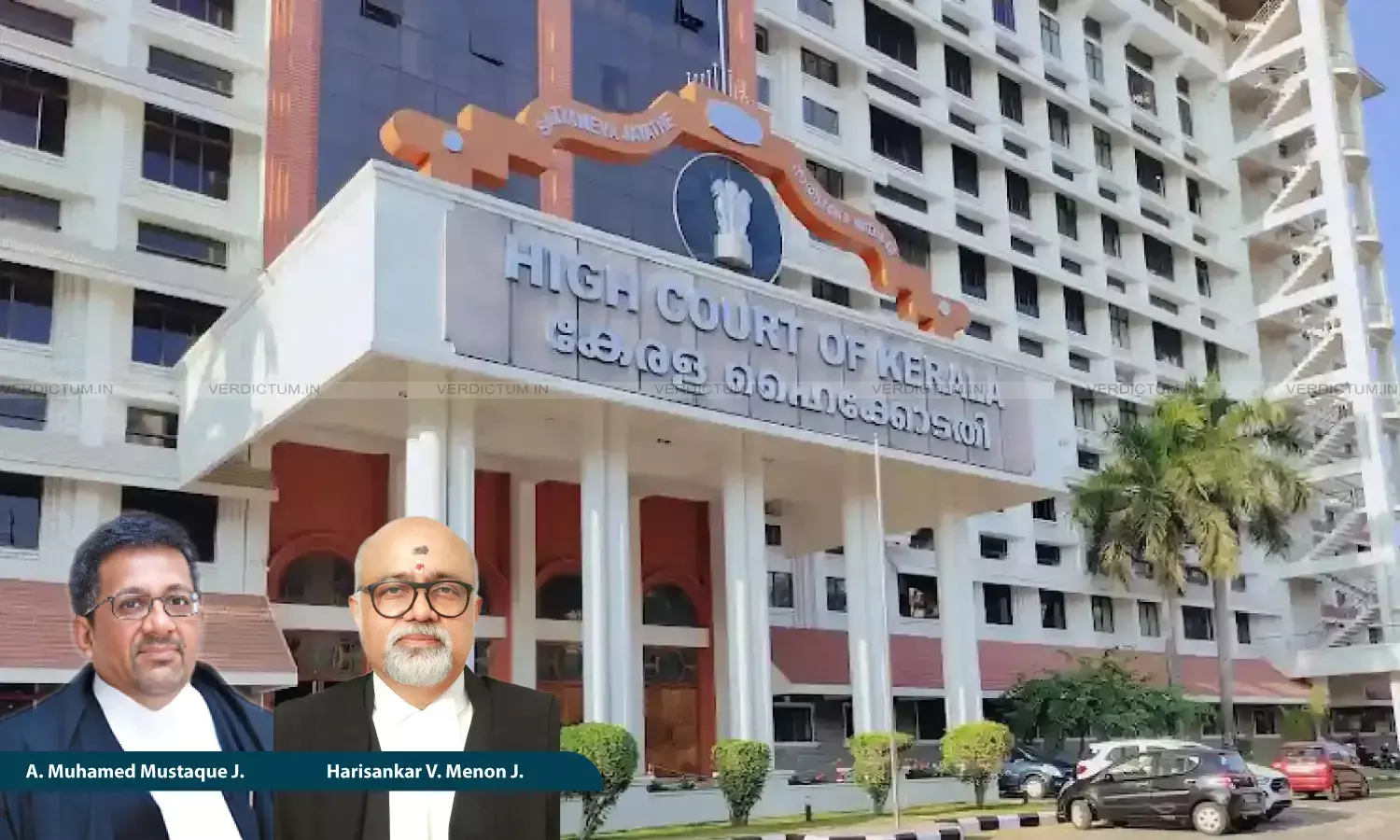Disputes Which Competent Authority Can’t Decide By Itself Can Only Be Referred To Civil Court U/S.3H(4) Of National Highways Act: Kerala High Court
The Kerala High Court was considering a question on the contextual meaning of ‘dispute’ referred to in Section 3H(4) of the National Highways Act, 1956.

The Kerala High Court has recently explained that the disputes qualified for reference to Civil Court under section 3H(4) of the National Highways Act would arise only in circumstances where the competent authority cannot, by itself and without the aid of the adjudication process, decide on the title or interest of the party or the claimant.
The High Court was considering a question on the contextual meaning of ‘dispute’ referred to in Section 3H(4) of the National Highways Act, 1956.
The Division Bench of Justice A. Muhamed Mustaque and Justice Harisankar V. Menon held, “It can be concluded that disputes qualified for reference would arise only in circumstances where the competent authority cannot, by itself and without the aid of the adjudication process, decide on the title or interest of the party or the claimant. However, in circumstances where the title deed or any other document relied on by the claimant is complete and valid on its face, the competent authority is not expected to refer such a dispute to the civil court, even though the dispute has arisen by challenging the title deed or document relied on by the claimant.”
Advocate P.K. Sreevalsakrishnan represented the Appellant while SC Mathews K. Philip represented the Respondent.
Factual Background
The appellant, who was the writ petitioner, claimed that he was entitled to the compensation amount awarded in favour of the party respondents. It was stated that the property, which was acquired, was covered by the settlement deed executed by his father when he was a minor. According to the appellant, his father had transferred the property without obtaining permission from the civil court. The deed was executed in the year 1968. The Single Judge examined the matter and opined that such a challenge was hit by the provisions of the Limitation Act.
Reasoning
The Bench at the outset explained that this provision provides for reference of disputes by the competent authority to the decision of the Principal Civil Court of original jurisdiction within the limits of whose jurisdiction the land is situated. The circumstances in which the disputes have to be referred to the civil court are disputes relating to the apportionment of the amount and disputes relating to the person to whom compensation is payable.
The Bench stated, “However, the mere fact that a party raises a challenge to such a document does not oblige the competent authority to refer to the civil court. Unless and until the document is impeached in proceedings before a competent civil court, it continues to remain valid and binding for the competent authority to act upon. A dispute which the competent authority may refer under Section 3H(4) of the NH Act must be one that the competent authority cannot decide without adjudication, and it must be a dispute from the perspective of the competent authority and not from the perspective of the person challenging it.”
“Merely for the reason that a third party could challenge such a document, the competent authority is not bound to refer such a dispute to the civil court. The remedy still available for such a person is to question or impeach the title deed in appropriate proceedings before the civil court, independent of the provisions under the NH Act Sometimes, such a challenge will be barred from adjudication by operation of the provisions of the Limitation Act, 1963, and such parties cannot get immunity from the limitation law in the guise of a reference from the competent authority”, it added.
As per the Bench, the observation of the Single Bench was unnecessary. Given the fact that compensation was disbursed based on the title deed produced by the party respondents and the competent authority had not committed any error in acknowledging the said title deed, the Bench stated that there was no need for referring such a dispute to the civil court under Section 3H(4) of the NH Act. As per the Bench, it was for the appellant to impeach the title deed by instituting a separate civil suit, and he could not invoke the provisions of reference under the NH Act as a means to raise such a challenge in acquisition proceedings initiated under the NH Act.
The Bench thus reserved liberty to the appellant to challenge the title of the party respondents before the civil court, independent of the acquisition proceedings under the NH Act, subject to the law of limitation. “The question of limitation can be decided in such a civil suit and accordingly is left open”, it concluded.
Cause Title: Saravanabhava v. The District Collector (Neutral Citation: 2025:KER:67466)
Appearance
Appellant: Advocates P.K.Sreevalsakrishnan, K.R. Prathish, S. Unnikrishnan (Nellad), Krishna Das, Akhil Babu
Respondent: SC Mathews K.Philip, Philip T.Varghese, Thomas T.Varghese, Achu Subha Abraham, V.T.Litha, K.R.Monisha, Senior Government pleader T.K.Shajahan

